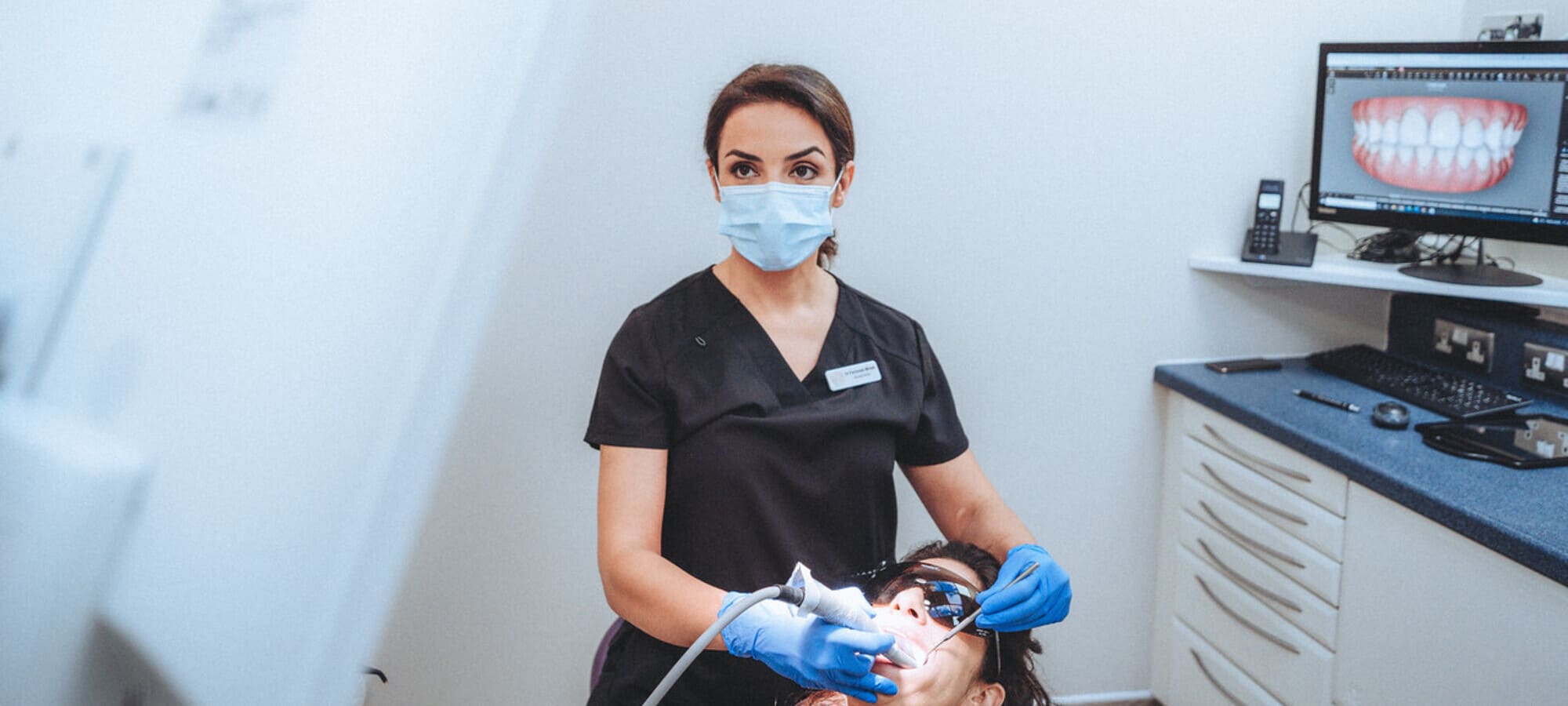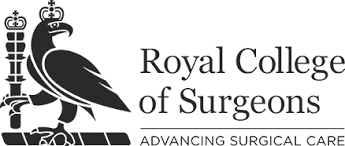
Periodontics
Accurate & Gentle Specialist PeriodonticsPERIODONTICS IS THE TREATMENT OF THE GUMS AND SURROUNDING SUPPORTING STRUCTURES. TREATMENTS ARE CARRIED OUT BY OUR SPECIALIST PERIODONTIST DR PAULINE LAUTARD.
She is a highly skilled and dedicated clinician who is passionate about treating periodontal disease. She is involved in dental research to be at the forefront of new advances in the treatment of periodontal disease.
What is Periodontics?
Periodontology or periodontics is a specialist branch of dentistry that studies the supporting structures of teeth. And, the diseases and conditions that affect them. The periodontium (supporting structures) includes the gingiva, alveolar bone, cementum, and the periodontal ligament.
What are the symptoms of Periodontitis?
Periodontal disease can often develop silently. Meaning symptoms don’t usually occur until it is in advanced stages. However, you should be aware of these common symptoms;
- Red, swollen or tender gums or other pain in your mouth.
- Bleeding while brushing, flossing, or when eating some foods.
- Receding gums or gums that are pulling away from the teeth, causing the teeth to look ‘longer’ than before.
- Mobile, drifting or separating teeth.
- Pus between your gums and teeth.
- Persistent bad breath.
- A change in the way your teeth fit together when you bite.
- A change in the fit of partial dentures.
What are Periodontal Pockets?
If periodontal disease is left to progress it can cause a loss of attachment between your tooth’s surface and surrounding supporting tissues. This attachment loss causes pockets between your tooth and gum. Over time, these periodontal pockets can get deeper. Leaving a larger space for toxic bacteria to live. As bacteria develop around the teeth, they can accumulate and advance under the gum tissue.
Non-Surgical Periodontic treatment
Periodontal disease can often be treated successfully. Ideally, we would like to gain periodontal health with non-surgical treatment. This involves special cleaning, called “scaling and root surface debridement”. This disturbs and remove plaque, tartar deposits and bacterial toxins. (which lead to bone loss around the tooth and root surfaces). This procedure helps gum tissue to heal and periodontal pockets to shrink. This can also be called “periodontal cleaning” or “deep cleaning”.
Surgical Periodontic treatment
Surgical Periodontics will only be recommended after trying to reduce periodontal pockets with non-surgical treatment. If we are unable to reduce the pockets to a manageable depth for you and your hygienist to maintain, minimally invasive pocket reduction surgery may be required. The goal of surgical treatment is to reduce the depth of your pockets in order to limit areas where toxic bacteria can hide, to allow the gum tissue to better reattach to healthy bone.
Can Implants get Periodontitis?
Yes. Just like teeth, implants can be affected by the bacteria that cause periodontitis. With implants it’s called Peri-Implantitis. It affects the bone the implant is fixed to. Peri-Implantitis can progress quickly. So, you will need to meticulous with your oral hygiene if you have a dental implant placed.
Can I prevent Periodontitis?
Taking good care of your teeth and gums at home is the best way to prevent Periodontitis. If you have been diagnosed or susceptible to periodontal disease you will need an elevated oral hygiene regime. This can include; brushing your teeth after every meal and before bedtime. Flossing at least once each day. And, seeing your dentist, hygienist or periodontist for regular appointments every 3 months. Spending extra time on preventative maintenance may save you the time and money on treating Periodontitis
Can I finance my treatment?
We understand that periodontal treatment plans can often be quite expensive. So, we offer a number of finance options available to help make your dental health more affordable. Please discuss personal payment plans with us at your next visit.



